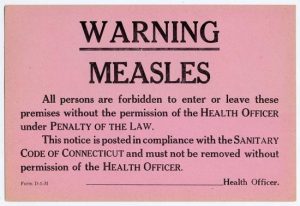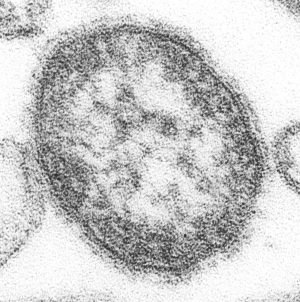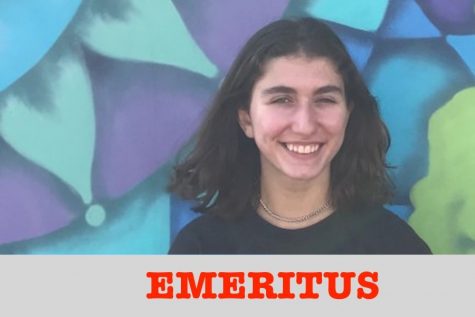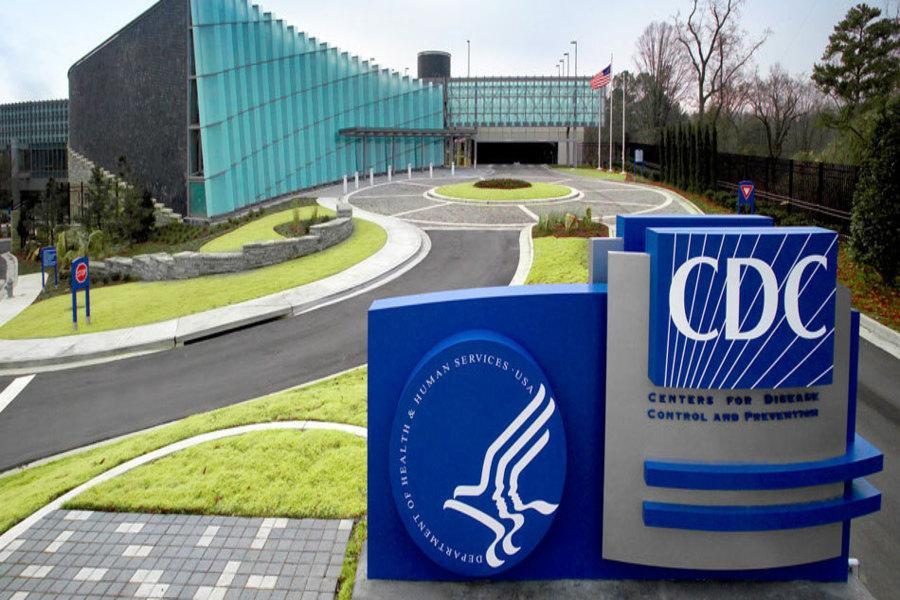Private schools playing catch-up on immunizations against measles
Second local occurrence in two years reveals uncertainty about percentage of students who have received the vaccine
Photo from: https://www.cdc.gov/od/science/technology/techtransfer/
PROTECTION: The Centers for Disease Control in Atlanta say a community is protected from measles if at least 96 percent of members are immunized. By that criteria, no one at Shalhevet is likely to catch the very contagious disease.
Los Angeles’ latest measles outbreak, which was centered in the Orthodox Jewish community, has been over since early last month. But low school immunization rates may have caused it, and uncertainty around immunization rates may contribute to the next one, according to county health officials.
Eighteen cases of the illness, 15 of them occurring among people who knew each other, were reported in the Orthodox community beginning in early December. The outbreak was declared over on Feb. 5, when the incubation period of 21 days had passed from the last known diagnosis without another new case being reported.
County officials would not say which Jewish day schools had been affected, and they also said that private schools’ immunization rates are surprisingly difficult to discern.
“What makes it difficult in the Jewish day school environment is that if you go to a public school, the public school system has a whole infrastructure to track immunizations,” said Dr. Julie Higashi of the Los Angeles County Health Department.
“The private schools also need to be in compliance with the law, but they don’t have a huge centralized system like LAUSD to set up all the paperwork, to process it, to make it easy for parents to know what to do and for the schools to know what to do.”
Measles is an extremely contagious disease which has mostly disappeared from developed countries but which is a leading cause of death among children worldwide, according to the World Health Organization. WHO said 134,200 died of measles worldwide in 2015 — about 367 per hour.

It is caused by a virus that can be prevented with a vaccine. WHO says 85 percent of the world’s children were vaccinated as of 2015.
Rabbi Hershey Ten, who heads the Bikur Cholim organization — a Jewish social support agency that helps families find and coordinate medical care — worked with the Health Department to contain the outbreak.
He said there’s a simple solution, one which is apparently not being followed: all Jewish schools should immediately adopt official policies barring entry to non-immunized students.
“It’s safe to say that there are a significant number of schools in the Pico-Robertson area and the Beverly-Fairfax area that still have children enrolled” who are not immunized, said Rabbi Ten in an interview with the Boiling Point.
“What we are able to do,” he said, “is that unlike public schools that cannot make private policy, a Jewish day school can make private policy that goes above and beyond the policy of the state. We can be stricter, basically.”
This year’s measles outbreak came less than two years after the last one, which ended in 2015 after starting at Disneyland. That outbreak, which had over 50 cases also including some in the Orthodox community, sparked wider concern and led to the passage of SB 277, which was signed by Gov. Jerry Brown on June 30, 2015.
The new law mandates that all students in California schools be immunized, and that schools confirm their vaccination status on entering kindergarten and again when they enter seventh grade.
Its goal is for the state to benefit from something called “herd immunity,” which is when enough of a population is made immune to an infectious disease that its spreading would be improbable.
According to the U.S. Centers for Disease Control (CDC), a group has herd immunity if at least 96 percent of its members are immunized. With herd immunity, “even individuals not vaccinated (such as newborns and those with chronic illnesses) are offered some protection because the disease has little opportunity to spread within the community,” the CDC says on its website.
Since the law’s enactment, California’s immunization rate has risen from 90.4 percent to 92.9 percent, according to the LA Times.
Herd immunity is especially important when dealing with measles, which is more contagious than pertussis, smallpox, mumps, diphtheria or the flu, according to the European Centre for Disease Prevention and Control.
“Measles is one of the most contagious diseases known to mankind,” said Dr. Higashi. “Anybody that sneezes or coughs, you have to worry about being within six feet of them because some of the droplets might land on you, and you might inhale them.”

CONTAGIOUS: Even with 85 percent of the world’s children immunized, measles virus was still the leading cause of childhood deaths worldwide in 2015.
The actual source of this year’s outbreak was not reported. Dr. Higashi said this is for safety reasons.
“If you disclose the actual site, then the community that you’re trying to work with goes underground and won’t cooperate, because they’re so upset that everyone knows their business,” said Dr. Higashi, who is the mother of Shalhevet senior Seiji Shaw.
“I know the Health Department is really trying to protect the privacy of the community involved because they don’t want to stigmatize the Jewish community, the Orthodox community, because there are many sections of the Orthodox community in Los Angeles.”
A statewide database tracks kindergarten immunization rates for every school in California, including all of the Jewish schools, and can be viewed online at EdSource.org.
The database shows uneven, though mostly improving, kindergarten vaccination rates among Shalhevet’s feeder schools. Sinai Akiba Academy in Westwood did not have herd immunity in 2013 and 2014, but is slowly inching toward the target 96 percent with a 91 percent kindergarten rate in 2015; Pressman Academy was fully immunized in 2014 and dropped to 91 percent in 2015. Yavneh Hebrew Academy jumped from a mere 55 percent in 2014 to 93 percent a year later.
In the same period, Harkham Hillel Academy‘s kindergarteners stayed at or below the threshold for herd immunity, with 74 percent of entering kindergarteners fully immunized.
But these numbers can be misleading, according to Dr. Higashi. They may mean that not every student is immunized on day one of kindergarten, but by the end of the year their family may have gotten around to it.
“I think a lot of families might not have a work schedule that’s flexible and allows them to take their kids to the doctor when they’re supposed to,” she said.
At Hillel, Principal Mr. Jason Ablin said since the new law went into effect, every incoming student must be immunized. He said at least one family had been turned away from the school for refusing to comply.
“We have a zero tolerance policy,” Mr. Ablin told the Boiling Point. “Everyone is required to come into school with immunizations, according to California state law.”
According to Edsource, only 74 percent of Hillel kindergarteners were vaccinated on the first day of school in 2015. But Mr. Ablin said students keep getting immunized throughout the year.
“The data looks like the kids are un-immunized, but that’s not the story,” said Mr. Ablin. “Certain doctors have different rates by which they gave immunizations, some doctors give them all at once, some doctors give them over a series of, let’s say, six months. So kids come in with some immunizations, but with a note from the doctor saying they’re getting the other immunizations later.”
He said all of Hillel’s students were immunized by the end of their kindergarten year.
Regarding seventh-graders — who are required to have a booster shot for tetanus, diphtheria and pertussis — Mr. Ablin said usually about 80 percent are already immunized when the school calls. The rest, he said, usually say they didn’t know about the requirement.
“For some reason, which I don’t know, some parents aren’t well-educated about that and they don’t know,” he said. “I think it’s just a matter of timing, meaning they haven’t gone with their kid for their seventh-grade annual physical by the time they hit seventh grade so they don’t know, and then they say ‘Of course, we’ll go get it right away,’ and then we’re at a 100 percent. But that’s usually the process we go through.”
Dr. Higashi agreed, and said other students come from families who just are running behind schedule.
Mr. Ablin said Hillel changed its policy after the Disneyland outbreak, and that the school has refused entrance to families who had principled objections to the practice.
“Once the California state policy changed, we changed also,” Mr. Ablin said, “and we said no more exceptions, everyone who comes in has to be immunized.”
The situation at Shalhevet was likewise not entirely clear, although the school’s herd immunity seems assured. High schools are required to have students immunized, but they are not required by law to check students’ immunization records.
In early February, Head of School Rabbi Ari Segal said there were fewer than five students this year who were not immunized, and he said the school was “in the process” of complying with the new law.
He said the unimmunized students had been admitted under the state’s previous law, which allowed schools to issue “waivers” to families who did not want to immunize their children for personal or religious reasons.
“We were operating under the previous policy where families could file for an exemption,” said Rabbi Segal in an email response to Boiling Point questions. Of the new law, which disallows such waivers, he said, “We are aware of it and are in the process of complying with it.”
Executive Director Sarah Emerson Helfand said March 21 that Shalhevet’s enforcement of the policy had been updated.
“We’ve brought the school into compliance with the current regulations,” Ms. Emerson said in an interview, by getting “the required documentation.”
“The law requires that if there is an exemption, it has to be signed off by a medical professional, not just a parent waiver — it must be a medical waiver,” Ms. Emerson said, and now Shalhevet requires that as well. Medical waivers are generally granted only to students with compromised immune systems.
If it is correct that fewer than five students are not vaccinated, then more than 96 percent of Shalhevet’s students are immunized already, giving the school herd immunity.
Rabbi Ten said Shalhevet should have all of its students immunized as soon as possible.
“I would recommend that the school creates a policy, effective immediately, that any child that is not immunized will not be allowed to remain in the school until they have received and are up to date on all of the necessary immunizations,” Rabbi Ten said.
Although the Health Department never revealed the source or school names in this year’s outbreak, rumors spread that the cases were confined to Chasidic or Haredi schools, and that Modern Orthodox institutions like Shalhevet were not threatened.
Rabbi Ten denied this emphatically.
“Measles is the most contagious disease that is out there, it will linger in a room for almost two hours after a person leaves the room,” Rabbi Ten said.
Because the disease spreads so easily, he said, shoppers in line at a market could catch it from one another without knowing the person beside them was sick, he said.
“We are not living in a bubble, and I don’t know who made the determination that it was the quote ‘right-wing community,’ but we are all impacted by this,” he said. “Measles spreads very quickly, it finds the weakest among us. We live today in communities where people are moving around all the time.”
So even if measles had only been present in the more conservative Jewish communities, which Rabbi Ten stated was false, it would not matter because all Jews in the Pico-Robertson and Fairfax-Beverly areas shop in the same markets, go to the same kosher restaurants, and walk the same streets on Shabbat.
“It’s irrelevant to even to comment on that,” Rabbi Ten said. “Even to make that distinction without evidence that that occurred because of the community they are in would be extremely unfair and inflammatory.”
Rabbi Ten said families who have sought waivers for non-medical reasons come from all walks of Jewish life. Some have heard of long-debunked studies that claimed to show a link between the vaccines and autism. Rabbi Ten, like Dr. Higashi, the county Health Department and the CDC, said there is no evidence at all that immunizations cause autism.
The Boiling Point interviewed a mother whose children attend a local Orthodox Jewish day school, and who did not vaccinate her children before the 2015 law. She spoke only on the condition that her name would not be used, fearing community disapproval.
The woman said she believed that vaccines would “impact her children’s bodies negatively,” and that the immunizations did not guarantee her children wouldn’t still get sick.
California law has now outlawed waivers for fears like these. When the law changed, she got them the shots.
“Because I am forced to,” she said.
This is exactly the kind of change the new law is hoping will boost herd immunity for all Californians, and prevent new outbreaks like the one that just ended.
“Over the years, the incidence of non-immunized children because of personal belief is not specific to those who are poor or uneducated,” Rabbi Ten said. “Many who are educated or upwardly mobile do not immunize their children. This disease has nothing to do with a person’s wealth, or religiosity, or cultural background.”
Staff writer Nicholas Fields contributed to this story.

Hannah Jannol was Editor-in-Chief of the Boiling Point during the 2017-2018 school year. Since then, she has attended The New School and written for their HerCampus chapter; edited obituaries for The Trace; written poetry for Eleven and a Half literary magazine, and run Instagram and Twitter for Uptown Stories. Her favorite parts of being on Boiling Point were production night and writing long-form features stories, many of which won awards from CSPA, Quill & Scroll and the American Jewish Press Association.


Molly Keene, New York • Mar 23, 2017 at 10:38 am
It is unbelievable that there are still people who think vaccinations are bad for you. Thank you for shedding light on this important issue @hannahjanol!